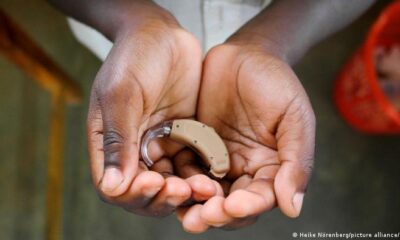BRITS have been warned to take extra safety precautions around older and more vulnerable family members this winter, as Covid cases begin to climb.
Fresh figures suggest infections of the bug have climbed above one million for the first time since the end of October, while Scotland and Wales have both seen an increase.

NHS GP Philippa Kay said the jump in Covid cases combined with the rise in flu is “very concerning.”
Flu hospitalisations in England doubled in just one week as the NHS braces for one of the worst outbreaks of the virus in recent years.
She urged those who feel at all unwell to stay clear of grandparents over the Christmas period.
“Although we have all been looking forward to the holidays for a long time, in view of the pandemic, it is still important not to spread infections, be it Covid, flu or another bug,” the GP told The Sun.
“If you have a fever or are too unwell to do what you would normally do in a day then you are too unwell to see relatives,” she explained.
Sadik Al-Hassan, a pharmacist based in Bath, has advised those visiting elderly or vulnerable relatives this winter to take on extra safety precautions.
“Use hand gel before and after the visit and wear a face mask if you can,” Sadik told The Sun.
“And if you are a little under the weather make sure you have plenty of fluids, rest, vitamin C and D,” he added.
A new Covid variant, known as BQ1 Omicron is driving the new surge new cases this Christmas.
The rise could not come at a worse time, as backlog of people waiting for surgery reaches 7.2million and nurses across the country strike in a bid for better pay,
Data from the Office for National Statistics suggest 1.3million Brits had the virus in the week to December 5.
This is up 16 per cent from 1.1 million in the previous week.
However deaths from Covid have been falling, with 402 recorded in the seven days to December 10.
Covid jabs and booster injections are still freely available in the UK and are the best source of protection against the impacts of the virus.
The majority of infections are found among 25 to 34-year-olds, with 2.9 per cent likely to have the virus – the equivalent of one in 35.
The jump in infections is likely to be driven by people mixing more indoors, health experts said, and comes as other winter viruses are circulating more widely.
During the main waves of coronavirus earlier in 2022, the total peaked at nearly four million in July and just under five million in March.
Michelle Bowen, ONS head of health surveillance, said infections have begun to increase again across “most of the UK”, though “the trend varies across the English regions and ages”.
“We will continue to monitor the data carefully as the winter months progress,” she added.
The latest figures suggest the UK is facing its third winter in a row with Covid-19 on the rise.
But unlike in 2020 and 2021, when coronavirus was the main driver of sickness and hospitalisations, this winter is seeing other viruses becoming more prevalent.
For the first time since the pandemic began there are more people being admitted to hospital with flu than Covid, data from the UK Health Security Agency (UKHSA) suggests.
The worrying figures reveal rates of flu have more than double among those most of risk to the virus – children under the age of five and in adults aged 85 and over.
Dr Jamie Lopez Bernal, the consultant epidemiologist for immunisation and counter-measures at the UKHSA, said: “We’re seeing rises in flu, Covid and other winter viruses as people mix more indoors this winter.
“Covid hospitalisations are highest in the oldest age groups, so it is particularly important that everyone who is eligible continues to come forward to accept their booster jab.
“If you are unwell this winter, please try to stay at home and avoid contact with other people, particularly elderly or vulnerable people – this will help stop infection from spreading.”
The NHS is also dealing with an outbreak of Strep A – which has so far killed 19 children.
The surge in cases is putting a huge strain on NHS 111 and pharmacists, with shortages of penicillin and other antibiotics reported across the UK.

Must See
-


Tips
/ 10 months agoTen reasons for Amsterdam
Amsterdam mainly celebrates April 27th in Orange. The king’s birthday is traditionally celebrated with a...
-


Tips
/ 11 months agoTen travel tips for South Korea
A country between high-tech and tradition. A visit to East Asian South Korea is worthwhile...
-


Tips
/ 11 months agoTen reasons for Mecklenburg-West Pomerania
No other federal state has as much water as Mecklenburg-Western Pomerania. Baltic Sea waves wash...













